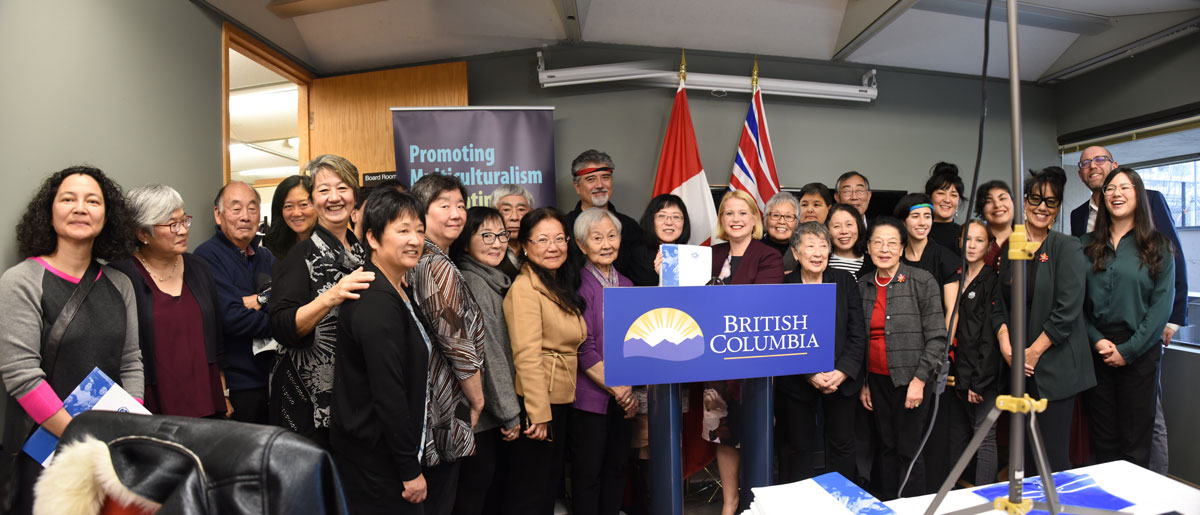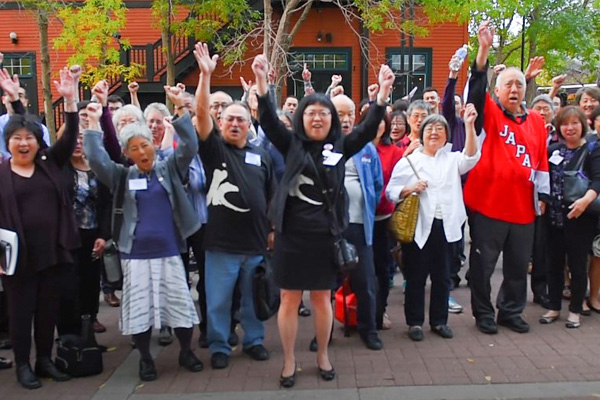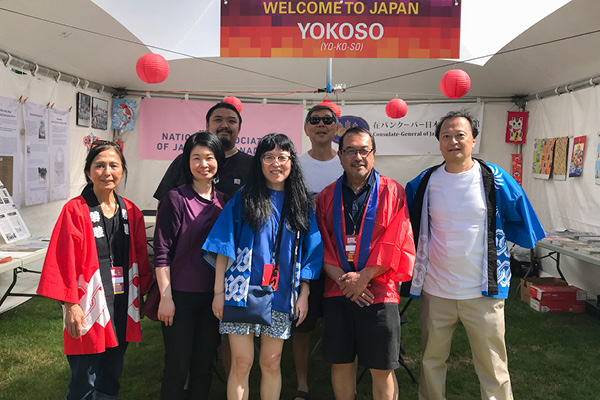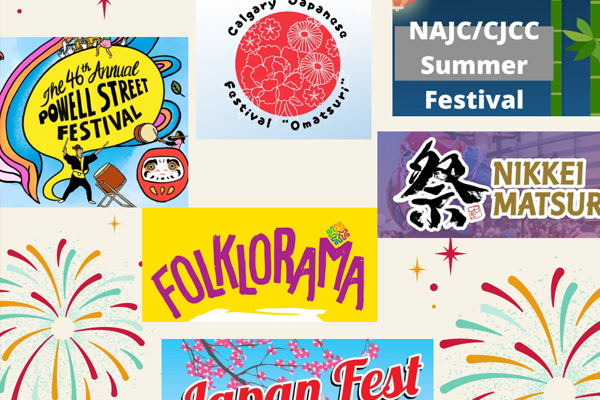by Lorene Oikawa
Members of the Japanese Canadian community, from children to seniors, and honoured guests were gathered together in a government boardroom in the afternoon of Friday, November 15, 2019. The group was witnessing a delegation from the National Association of Japanese Canadians who were hand-delivering a report, Recommendations for Redressing Historical Wrongs Against Japanese Canadians in BC. The key actions recommended in the report are about initiatives the government could undertake as meaningful follow up to a 2012 Motion of Apology in the BC Legislature.

As we have been reporting in our e-news and messages in the Nikkei Voice, and The Bulletin, there has been a lot of work happening to prepare, organize, and carry out months of community consultations with hundreds of Japanese Canadians, and then collect the findings. This report is the result.
During the community consultations, we heard from members of our community who experienced the discrimination, the uprooting, dispossession, and internment. At the live event, we heard from two from our community, Mary Kitagawa and Judy Hanazawa. This is deeply personal for our community. Many Japanese Canadian families were long-time settlers in BC, like my family who came from Japan in the 1800s, and were denied their rights, denied education, and forced to endure internment until four years after the end of the Second World War. The Canadian military and the RCMP told the government there was no need to take action against Japanese Canadians, but they were ignored. Not one Japanese Canadian was ever charged with an act of disloyalty.
We appreciate the BC government’s support for the community consultations to determine meaningful measures to redress the violation of rights and losses. This report examines what is needed to rebuild the Japanese Canadian community, and ensure what happened to Japanese Canadians never happens again to Canadians of any ethnicity or orientation. This is an opportunity for us to foster positive changes that not only pay tribute to Japanese Canadians, but benefit BC society as a whole.
Lisa Beare, BC Minister of Tourism, Arts and Culture, acknowledged “the significant harm that came to Japanese Canadians as a result of provincial government action before, during and after the Second World War.”
I was honoured to present the report to the minister. I could feel the support of our community in the room, those watching through the live streaming, and my thoughts went to those 22,000 Japanese Canadians in 1942 including my own family.
Minister Beare said, ”We are now taking the time to carefully review the recommendations. Once this is completed, I look forward to continuing to work with the association on a plan for legacy initiatives that bring awareness to those historic wrongs and make sure they never happen again.”
The NAJC looks forward to partnership with the BC government to implement the measures recommended in the report. These are fundamental steps in the reconciliation process with Japanese Canadians and will assist the province to move forward as a welcoming and inclusive society.
A special note of thanks to NAJC Board Director Susanne Tabata who put in a tremendous amount of work to ensure we had this successful event for our community.
To watch the recording of the event and for the links to the report and appendices, please go to the NAJC website najc.ca
NAJC is participating in a commemorative event on November 28, 2019, the 110th anniversary of the Great Northern Railway disaster. A Great Northern train carrying 43 railway workers plunged into a ravine in Burnaby BC and 23 died. The workers who died were of Japanese descent and were trapped in a crowded boxcar and unable to escape. A plaque commemorating the event was installed adjacent to the site of the accident. The plaque was created as part of the BC Labour Heritage Centre’s Remembering Working People: Plaques around the Province project. The stories of Japanese Canadian railway workers are not well known. I hope the plaque will bring awareness to this story, and to the working conditions of Japanese Canadians and other racialized and Indigenous workers in the early 20th century.
Also, we will be participating with other community groups to mark other commemorative dates in December: December 6 – National Day of Remembrance and Action on Violence Against Women, December 3 – International Day of Persons with Disabilities, December 10 – Human Rights Day, and December 18 – International Migrants Day.
December is also the holiday season with many celebrations including Christmas, Hanukkah, Kwanzaa, St. Lucia Day and more. On behalf of the NAJC National Executive Board, I wish you peace, joy, and time to make wonderful memories with your family and loved ones. Enjoy good health and good food, including mochi, noodles on New Year’s Eve and Japanese food on New Year’s Day.



